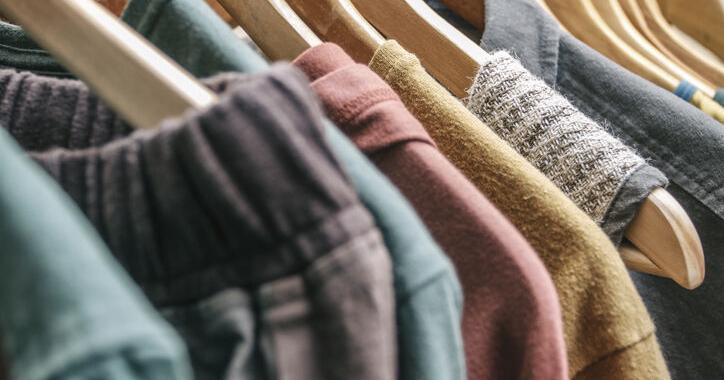
As a mom on a mid-sized millennial farm, I’ve seen firsthand how the worlds of farming and fashion have evolved over the years. Now they seem to be evolving together.
Not only have we embraced new technologies and sustainable practices in the farm fields, we’ve witnessed a growing interest in sustainable clothing materials produced by millennial farmers.
It’s a trend that’s not only reshaping the way we approach agriculture but is also making waves in the fashion industry. Today, I want to take you on a journey through the intertwining worlds of farming and fashion — and how the values we hold dear on our farm are influencing a more sustainable way of dressing.
At the heart of this movement is the concept of “slow living,” a term championed by organizations like We are Lady Farmer and Revivall Clothing. It encapsulates the idea of living consciously, making mindful choices and connecting with our roots through our clothes and fashion choices.
It’s about understanding the impact we have on the world and the end of the harmful effects of the “fast fashion” industry.
“Fast fashion“ is a term used to describe the overconsumption of cheap clothing. It is listed on the UN Environment Programme page as the trend of “new season, new styles, buy more, buy cheap, move on, and throw away.” It goes on to further say “pollution, waste, and emissions of the fast fashion industry are fueling the triple planetary crisis.”
I found We are Lady Farmer a few years ago, and was intrigued by their mission. Founded by the inspiring mother-daughter team Mary and Emma, the movement envisions a world where personal connections, sustainability and community are at the core of our lives.
At Lady Farmer, as they describe it, is someone who deeply cares about the people in their life and the land they tend to. Their Lady Farmer Guide to Slow Living encourages individuals to reflect on their relationship with the planet, what they eat, what they wear and how they can lead a sustainable lifestyle. The guide not only offers practical tips but also includes a 21-day slow-living challenge designed to help individuals make deliberate and meaningful changes in their daily lives.
Revivall Clothing, another key player in this movement, is a slow-fashion lifestyle brand with a clear mission — to encourage the revival of a simpler way of life through responsibly sourced, folk-inspired goods. This brand operates on three key pillars — responsible sourcing, zero-ish waste, and locally made.
These organizations are at the forefront of a movement that’s challenging the fast fashion industry. They are proving it’s possible to create beautiful, ethically produced clothing that is rooted in the values of slow living and conscious consumerism.
Millennial Farmers: The New Fashion Pioneers
One of the most exciting aspects of this movement is the connection between millennial farmers and the fashion industry. Here are some real-life examples.
• Regenerative agriculture for textiles in which millennial farmers are increasingly adopting practices focused on improving soil health, conserving water and sequestering carbon. Some farms are now growing cotton, flax and other fibers using regenerative techniques. These materials are used in fashion and represent a significant shift away from traditional, resource-intensive farming.
• The use of organic and eco-friendly dyes in textile production is on the rise. Many millennial farmers are experimenting with plant-based dyes — such as indigo — and incorporating them into fashion. These natural dyes not only reduce the environmental impact but also create unique, earthy colors.
• Farms that raise animals for wool, leather and other textiles are taking a more ethical approach. By ensuring the welfare of the animals, these farmers are producing high-quality, sustainable materials for fashion brands that prioritize animal welfare.
• Millennial farmers are embracing the direct-to-consumer model, much like they do with farm produce. They sell fibers and materials directly to fashion brands, cutting out intermediaries and ensuring transparency in the supply chain. This connection appeals to fashion brands that want to know where their materials come from.
• Millennial farmers are also choosing to wear and support sustainable fashion brands that align with their values. It’s a way of living the principles of slow living not just in farming but in every aspect of their lives.
Impacting the Fashion World
The influence of millennial farmers on the fashion industry cannot be understated. The fashion world is taking notice and we can see this shift in various ways:
• As millennial farmers produce organic and sustainable materials, fashion brands are increasingly seeking out these materials to create clothing that aligns with their commitment to sustainability. This demand is driving a shift in the textile industry toward more responsible sourcing.
• Fashion brands are looking to work with farmers who prioritize ethical and transparent supply chains. This means consumers can trace the journey of their clothing — from the farm to their wardrobe — with confidence that it was produced with care and respect for both people and the planet.
• As more people become aware of sustainable practices employed by millennial farmers, they are making more conscious choices when it comes to their clothing purchases.
• Collaborations between millennial farmers and fashion brands are becoming more common. These partnerships often result in one-of-a-kind clothing lines that showcase the beauty of sustainable farming practices.
The movement from farm to fashion has the power to transform not only the way we dress but the way we think about our connection to the land and the values we hold dear.
Millennial farmers — driven by a commitment to slow living and sustainability — are shaping the fashion industry in profound ways.
As a farmer and a women, I couldn’t be prouder to witness this incredible fusion of farming and fashion.
